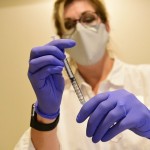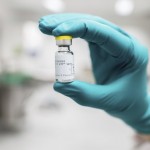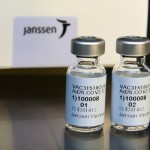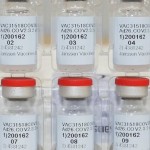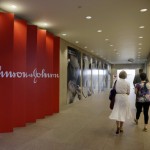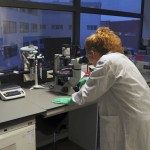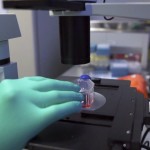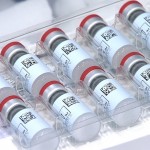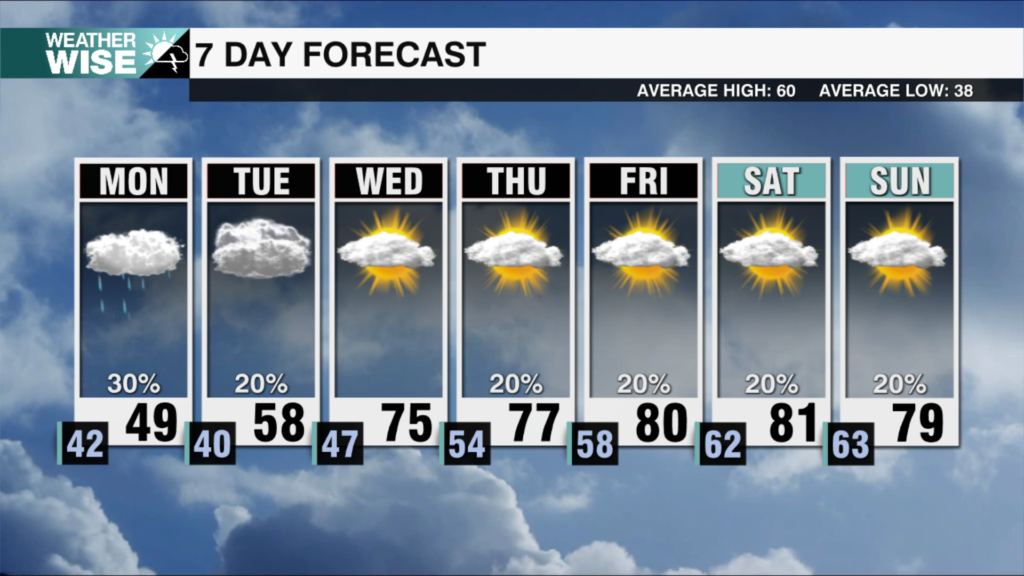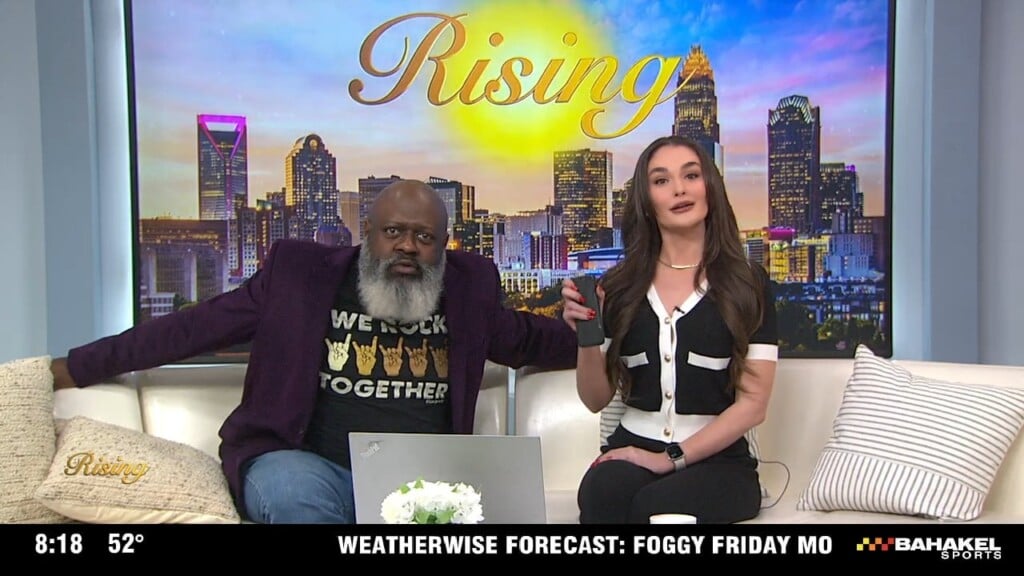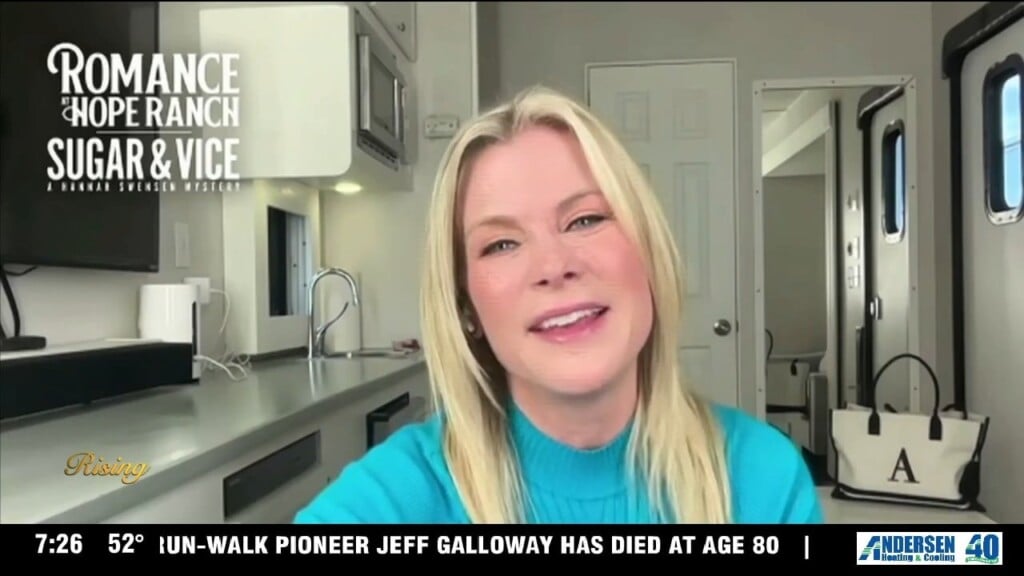U.S. Advisers Endorse Single-Shot COVID-19 Vaccine From J&J
The Latest:
U.S. health advisers endorsed a one-dose COVID-19 vaccine from Johnson & Johnson on Friday, putting the nation on the cusp of adding an easier-to-use option to fight the pandemic.
The Food and Drug Administration is expected to quickly follow the recommendation and make J&J’s shot the third vaccine authorized for emergency use in the U.S. Vaccinations are picking up speed, but new supplies are urgently needed to stay ahead of a mutating virus that has killed more than 500,000 Americans.
After daylong discussions, the FDA panelists voted unanimously that the benefits of the vaccine outweighed the risks for adults. If the FDA agrees, shipments of a few million doses could begin as early as Monday.
“There’s an urgency to get this done,” said Dr. Jay Portnoy of Children’s Mercy Hospital in Kansas City, Missouri. “We’re in a race between the virus mutating — and new variants coming out that can cause further disease — and stopping it.”
More than 47 million people in the U.S., or 14% of the population, have received at least one shot of the two-dose vaccines from Pfizer and Moderna, which FDA authorized in December. But the pace of vaccinations has been strained by limited supplies and delays due to winter storms.
While early J&J supplies will be small, the company has said it can deliver 20 million doses by the end of March and a total of 100 million by the end of June.
J&J’s vaccine protects against the worst effects of COVID-19 after one shot, and it can be stored up to three months at refrigerator temperatures, making it easier to handle than the previous vaccines, which must be frozen.
One challenge in rolling out the new vaccine will be explaining how protective the J&J shot is after the astounding success of the first U.S. vaccines.
“It’s important that people do not think that one vaccine is better than another,” said panelist Dr. Cody Meissner of Tufts University.
The two-dose Pfizer and Moderna shots were found to be about 95% effective against symptomatic COVID-19. The numbers from J&J’s study are not that high, but it’s not an apples-to-apples comparison. One dose of the J&J vaccine was 85% protective against the most severe COVID-19. After adding in moderate cases, the total effectiveness dropped to about 66%.
Some experts fear that lower number could feed public perceptions that J&J’s shot is a “second-tier vaccine.” But the difference in protection reflects when and where J&J conducted its studies.
J&J’s vaccine was tested in the U.S., Latin America and South Africa at a time when more contagious mutated versions of the virus were spreading. That wasn’t the case last fall, when Pfizer and Moderna were wrapping up testing, and it’s not clear if their numbers would hold against the most worrisome of those variants.
Importantly, the FDA reported this week that, just like its predecessors, the J&J shot offers strong protection against the worst outcomes, hospitalization and death.
While J&J is seeking FDA authorization for its single-dose version, the company is also studying whether a second dose boosts protection.
Panel member Dr. Paul Offit warned that launching a two-dose version of the vaccine down the road might cause problems.
“You can see where that would be confusing to people thinking, ’Maybe I didn’t get what I needed,’” said Offit, a vaccine expert at Children’s Hospital of Philadelphia. “It’s a messaging challenge.”
J&J representatives said they chose to begin with the single shot because the World Health Organization and other experts agreed it would be a faster, more effective tool in an emergency.
Cases and hospitalizations have fallen dramatically since their January peak that followed the winter holidays. But public health officials warned that those gains may be stalling as more variants take root in the U.S.
“We may be done with the virus, but clearly the virus is not done with us,” Centers for Disease Control and Prevention director Dr. Rochelle Walensky, said during a White House briefing Friday. She noted that new COVID-19 cases have increased over the past few days.
While it’s too early to tell if the trend will last, Walensky said adding a third vaccine “will help protect more people faster.” More vaccines are in the pipeline.
On Sunday, a CDC panel is expected to meet to recommend how to best prioritize use of the J&J vaccine.
Other parts of the world already are facing which-is-best challenges. Italy’s main teachers’ union recently protested when the government decided to reserve Pfizer and Moderna shots for the elderly and designate AstraZeneca’s vaccine for younger, at-risk workers. AstraZeneca’s vaccine was deemed to be about 70% effective in testing. Canada became the latest country Friday to allow use of AstraZeneca’s vaccine.
Update (2/4/21):
Johnson & Johnson asked U.S. regulators Thursday to clear the world’s first single-dose COVID-19 vaccine, an easier-to-use option that could boost scarce supplies.
J&J’s vaccine was safe and offered strong protection against moderate to severe COVID-19, according to preliminary results from a massive international study.
It didn’t appear quite as strong as two-dose competitors made by Pfizer and Moderna — a finding that may be more perception than reality, given differences in how each was tested.
But the Food and Drug Administration is asking its independent advisers to publicly debate all the data behind the single-dose shot — just like its competitors were put under the microscope — before it decides whether to green light a third vaccine option in the U.S.
Dr. Peter Marks, FDA’s vaccine chief, has cautioned against making comparisons before the evidence is all in.
“With so much need to get this pandemic under control, I think we can’t ignore any tool in the tool chest,” he told the American Medical Association last week. “We will have to do our best to try to make sure that we find the populations that benefit the most from each of these vaccines and deploy them in a very thoughtful manner.”
WHAT THE NUMBERS SHOW
Overall, the single-dose vaccine was 66% effective at preventing moderate to severe COVID-19, according to early findings from a study of 44,000 people in the U.S., Latin America and South Africa.
But it was 85% protective against the most serious symptoms — and starting 28 days after their shot, researchers found no one who got the vaccine needed hospitalization or died.
WEAKER BUT STILL FIGHTS MUTATING VIRUS
The one-dose option worked better in the U.S. — 72% effective against moderate to severe COVID-19 — compared with 66% in Latin America and 57% in South Africa, where a more contagious mutant virus is spreading.
Scientists have been looking for real-world evidence about how vaccines work as the world races to stay ahead of the rapidly mutating virus, and welcomed the news that the J&J option — while weaker — did still offer protection.
OTHER OPTIONS
In large U.S. studies, two doses of the Pfizer and Moderna vaccines proved 95% protective against any symptomatic COVID-19.
But those studies were finished before the record virus surges of recent months and the appearance of the worrisome mutants, meaning such testing might not turn out the same if repeated today.
J&J also is studying a two-dose version of its vaccine, but results won’t be available for several more months.
THE SUPPLY
J&J said it would have some vaccine ready to ship if the FDA allows emergency use of the shot, but it didn’t reveal how much. The pharmaceutical giant said it expects to supply 100 million doses to the U.S. by the end of June.
It expects to file a similar application with European regulators soon.
Original Story (1/29/21):
The first one-shot COVID-19 vaccine provides good protection against the illness, Johnson & Johnson reported in a key study released Friday, offering the world a potentially important new tool as it races to stay ahead of the rapidly mutating virus.
The pharmaceutical giant’s preliminary findings suggest the single-dose option may not be as strong as Pfizer’s or Moderna’s two-dose formula, and was markedly weaker against a worrisome mutated version of the virus in South Africa.
But amid a rocky start to vaccinations worldwide, that may be an acceptable trade-off to get more people inoculated faster with an easier-to-handle shot that, unlike rival vaccines that must be kept frozen, can last months in the refrigerator.
“Frankly, simple is beautiful,” said Dr. Matt Hepburn, the U.S. government’s COVID-19 vaccine response leader.
J&J plans to seek emergency use authorization in the U.S. within a week. It expects to supply 100 million doses to the U.S. by June — and a billion doses globally by year’s end — but declined to say how much could be ready if the Food and Drug Administration gives the green light.
Defeating the scourge that has killed more than 2 million people worldwide will require vaccinating billions. The shots being rolled out in different countries so far all require two doses a few weeks apart for full protection. Nearly 23 million Americans have received a first dose of Pfizer or Moderna shots since vaccinations began last month, but fewer than 5 million have gotten their second dose.
Also Friday, regulators cleared a third option, AstraZeneca’s vaccine, for use throughout the European Union. The decision came amid criticism that the 27-nation bloc is not moving fast enough, as well as concern that there’s not enough data to tell how well the vaccine works in older people.
J&J studied its one-dose option in 44,000 people in the U.S., Latin America and South Africa. Interim results found the shot 66% effective overall at preventing moderate to severe COVID-19, and much more protective — 85% — against the most serious symptoms. There were no serious side effects.
“Gambling on one dose was certainly worthwhile,” Dr. Mathai Mammen, global research chief for J&J’s Janssen Pharmaceutical unit, told The Associated Press.
The vaccine worked better in the U.S. — 72% effective against moderate to severe COVID-19 — compared with 66% in Latin America and 57% in South Africa, where a more contagious mutant virus is spreading.
The reduced protection against that mutation is “really a wake-up call,” said Dr. Anthony Fauci, the top U.S. infectious-disease expert.
The more the virus is allowed to spread, the more opportunities it has to mutate. Vaccine makers are looking into how to alter their shots if necessary.
For now, the findings are an incentive “to vaccinate as many people as we possibly can,” Fauci stressed.
Data is mixed on how well other vaccines being used around the world work, but the Pfizer and Moderna shots were 95% protective in large U.S. studies.
It’s not fair to compare studies done before the record surges of recent months and discovery of new mutants — they might not turn out the same today, cautioned Dr. Jesse Goodman of Georgetown University, a former FDA vaccine chief.
The J&J protection is “good enough to help attack a pandemic,” Goodman said. “The advantage of having more vaccine, in a single shot, would be significant.”
Researchers tracked illnesses starting 28 days after vaccination -– about the time when, if participants were getting a two-dose variety instead, they would have needed another shot.
After Day 28, no one who got vaccinated needed hospitalization or died, regardless of whether they were exposed to the original virus or “these particularly nasty variants,” Mammen said. When the vaccinated did become infected, they had a milder illness.
All COVID-19 vaccines train the body to recognize the new coronavirus, usually by spotting the spikey protein that coats it. But they’re made in very different ways.
J&J’s shot uses a cold virus like a Trojan horse to carry the spike gene into the body, where cells make harmless copies of the protein to prime the immune system in case the real virus comes along. It’s the same technology the company used in making a successful Ebola vaccine.
That’s similar to how AstraZeneca’s two-dose vaccine is made, although it’s not clearly exactly how well that one works. Tests in Britain, South Africa and Brazil suggested two doses are about 70% effective. An ongoing U.S. study may provide more information.
Still another vaccine is in final testing: Novavax reported this week that its vaccine appears 89% effective in a British study and that it also seems to work — though not as well — against new mutated versions of the virus circulating in Britain and South Africa. A larger study in the U.S. and Mexico is still enrolling volunteers.
Wall Street appeared dissatisfied with J&J’s results, with shares dropping 4.2% in early trading, a rare big drop for the world’s biggest maker of health care products. Its stock was down $4.07, or 2.4%, at $165.09 in mid-morning trading.
In contrast, tiny Novavax saw shares skyrocket, jumping 71% to $229.72 in mid-morning trading.
